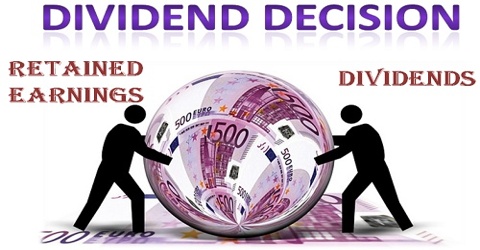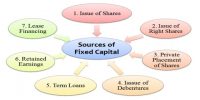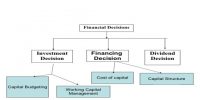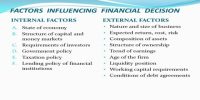Factors Affecting Dividend Decision
How much of the profits earned by a company will be distributed as profit and how much will be retained in the business is affected by many factors. The corporate, institutional and legal factors that influence the dividend decision of a firm include the growth and profitability of the firm its liquidity position, the cost and alternative forms of financing concerns about the managerial control of the firm etc. Some of the important factors are discussed as follows:
(a) Earnings: Dividends are paid out of current and past earning. Therefore, earnings is a major determinant of the decision about dividend.
(b) Stability of Earnings: Other things remaining the same, a company having stable earning is in a position to declare higher dividends. As against this, a company having unstable earnings is likely to pay smaller dividend.
(c) Stability of Dividends: It has been found that the companies generally follow a policy of stabilizing dividend per share. The increase in dividends is generally made when there is confidence that their earning potential has gone up and not just the earnings of the current year.
(d) Growth Opportunities: Companies having good growth opportunities retain more money out of their earnings so as to finance the required investment. The dividend in growth companies is, therefore, smaller, than that in the non– growth companies.
(e) Cash Flow Position: Dividends involve an outflow of cash. A company may be profitable but short on cash. Availability of enough cash in the company is necessary for declaration of dividend by it.
(f) Shareholder Preference: While declaring dividends, managements usually keep in mind the preferences of the shareholders in this regard. If the shareholders in general desire that at least a certain amount is paid as dividend, the companies are likely to declare the same.
(g) Taxation Policy: The choice between payment of dividends and retaining the earnings is, to some extent, affected by difference in the tax treatment of dividends and capital gains. If tax on dividend is higher it would be better to pay less by way of dividends.
(h) Stock Market Reaction: Investors, in general, view an increase in dividend as a good news and stock prices react positively to it. Similarly, a decrease in dividend may have a negative impact on the share prices in the stock market.
(i) Access to Capital Market: Large and reputed companies generally have easy access to the capital market and therefore may depend less on retained earning to finance their growth.
(j) Legal Constraints: Certain provisions of the Company’s Act place restrictions on payouts as dividend. Such provisions must be adhered to while declaring the dividends.
















